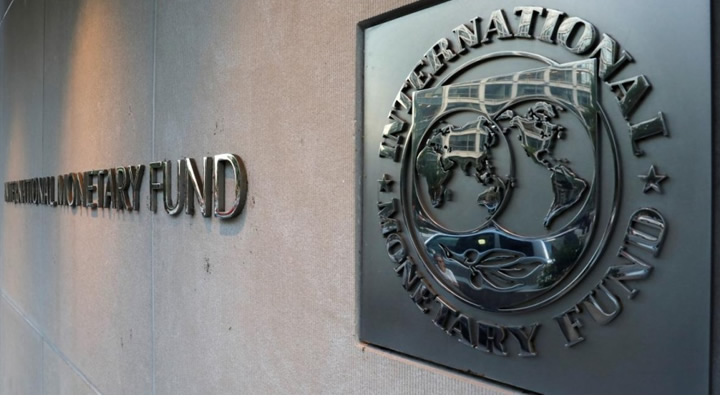Listeners:
Top listeners:
-
play_arrow
Kapital FM 92.9 The Station that Rocks!

The International Monetary Fund, on Friday, said for Nigeria’s fuel subsidy removal policy and foreign exchange unification initiative to translate to economic growth and stability, the Federal Government must collect more taxes to fund the national budget and pay public debts.
The IMF Africa Department Director, Abebe Selassie, made the position known during a press briefing on the Sub-Saharan Africa Regional Economic Outlook at the ongoing World Bank Group/International Monetary Fund Meeting in Marrakech, Morocco.
He spoke against the backdrop of the harsh economic conditions in Nigeria on the back of the removal of fuel subsidy and foreign exchange unification by President Bola Tinubu after taking office in late May.
The deregulation of the downstream oil sector has pushed petrol prices from about N185/litre to about N600/litre, a development that has caused pain and untold hardships for more Nigerians.
Aside from this, policies aimed at unifying the official and parallel market rates of the naira announced in early June by the government have worsened the sharp rise in the prices of goods and services following the jump in the pump price of petrol.
Despite the initial savings made from fuel subsidy removal by the Federal Government, over 90 per cent of government revenue still goes into debt servicing, leaving it with a meagre amount to cater to major economic growth and development projects.
However, the IMF said on Friday that Nigerian policymakers must urgently complement the fuel subsidy removal with a set of policies that could ameliorate the economic challenges facing the country.
Selassie said, “The exchange rate reforms that the government did were very, very welcome, trying to unify the rate, similarly the fuel subsidy. But that will not help and will not stick unless you also are tightening monetary policy; unless you’re also doing something to mobilise more tax revenues. So, a holistic package of reforms is what’s needed.
“So, you have a medley of things mainly rooted in the fiscal challenges that Nigeria has faced, not having tax revenues. At the same time, this is a country with incredible potential and we have seen reforms moving in the right direction in recent months. What is needed, we feel, is making the reforms holistic and help reinforce each other. Just as things were not reinforcing each other in the past, I think there is scope to make the reforms reinforce each other.”
The IMF director noted that Nigeria had over-relied on oil revenue, making it difficult to tap its potential in other areas.
He said, “Why are there not enough tax revenues? I think in the past, over-reliance on oil was when prices were high. Second, of course, also is the subsidy regime, which also entails quite a lot of loss of government resources being directed where they perhaps should not be. So, I think these are all interlinked issues, including causing some of the inflation that you’re seeing, because, given the difficulty to tap international capital markets, the government has had to rely more on domestic financing, which has either crowded out the private sector or of course caused the monetary injection, which again has weakened the exchange rate.”
Selassie, however, said the leaders at the Central Bank of Nigeria and the Ministry of Finance were new, adding that there was a need to give them more time to act.
punch
Written by: Kevin Nwabueze
IMF Proposes More Taxes After Removal subsidy
Similar posts
Recent Comments
No comments to show.-

Real Woman
Welcome to "Real Woman," a captivating radio program dedicated to exploring the diverse experiences and challenges faced by women. Tune in every Tuesday from 11:30 AM to 12 noon as host Mercy Didam and her crew dive into thought-provoking discussions, providing a platform for women's voices to be heard.
close Top popular
Chart
-
-
play_arrow
Sunshine Tommy Blues
-
play_arrow
-
-
play_arrow
Red Frank Lee
-
play_arrow
-
-
play_arrow
Eclipse Donna May
-
play_arrow
-
Copyright Kapital FM 92.9 Abuja - The Station that Rocks!









Post comments (0)